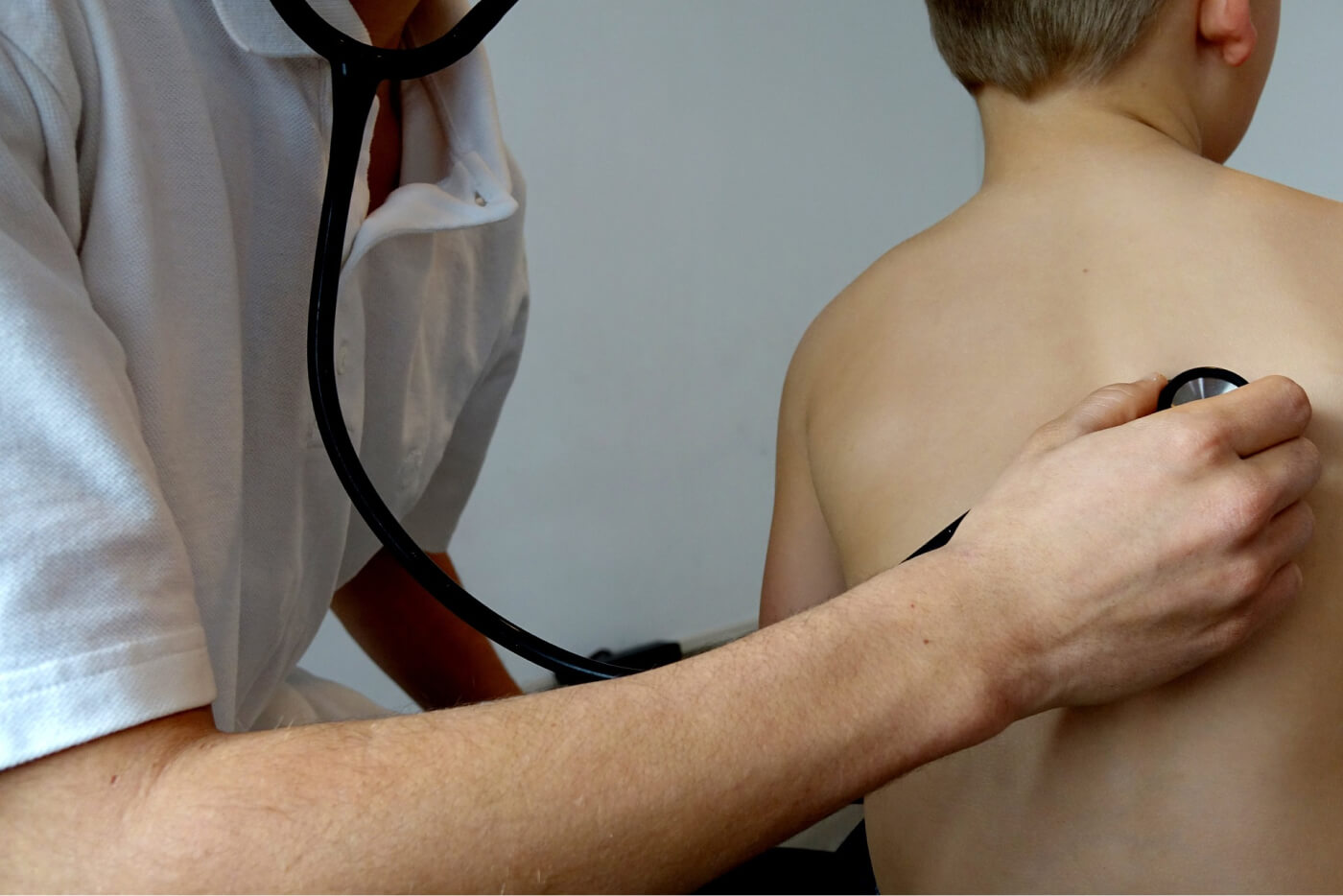New research reveals mealtime mismatch for preschoolers
.jpg)
May 1, 2018
Good nutrition-related behaviours early on can help establish healthy habits for life, but new research shows children are getting different messages about healthy eating from home and preschool.
Results in brief
- The study explored data on 6,205 45-month-old children in the Growing Up in New Zealand study and responses from 257 early childhood services to determine adherence with recommended nutrition-related behaviours. The latter all participated in the Kai Time in ECE survey which asked questions about nutrition policies and practices for three to four year olds in daycare centres, Kindergartens, Kōhanga Reo and Playcentres.
- Eight recommended nutrition behaviours were considered for each setting:
Home
- Child eats breakfast daily.
- Family sits together for main meal.
- Mealtimes are seen as a time to talk to each other.
- Mealtimes are never rushed.
- Child eats same food as parents for his/her main meal.
- Child eats a variety of foods.
- Family mealtimes are enjoyable.
- Screens/television rarely or never on when child is eating.
Early Childhood Education setting
- Staff sit with children while they eat.
- Staff eat the same food as the children.
- Staff talk to children about food at mealtimes.
- Staff never hurry children to finish eating.
- Staff promote water consumption.
- Staff never use food as a reward or punishment by restricting or denying access to food.
- Children make, bake or cook food regularly.
- Children participate in gardening activities.
- A mean 5.3 of 8 recommendations were followed at home and a mean 4.8 of 8 were followed at ECE services.
- The nutrition-related recommendations least likely to be followed in the home were: eating with the television turned off (46%) and never rushing mealtimes (39%).
- Most mothers reported that their child eats breakfast every day (95%), eats a variety of foods (81%), eats the same food as them (80%), and their family sits together for the main meal every day (79%).
- Mealtimes at home were reported by some mothers to be enjoyable for everyone (58%) and as a time to talk to each other (56%).
- The recommendations least likely to be followed in the ECE services surveyed were staff eating and drinking the same things as children (26%) and never hurrying children to finish eating (39%).
- The most common recommended nutrition-related behaviours in early childhood services were never using food as a punishment or reward (93%), encouraging water consumption (84%) and sitting with children to eat (80%). In 60 percent of services children learn about food (e.g. gardening, baking, cooking, nutrition education), and in 49 percent of services the staff always talk to children about food at mealtimes.
- There was little congruence between practices at home and early education services. Only a small number (4%) of children experienced high adherence to recommended nutrition-related behaviours in both their home and early education environment.
- Children from high deprivation communities were more likely to attend an early childhood education service following recommended best practice (25% of children in high deprivation areas attended a service with high adherence, compared to 14% of children living in areas of low deprivation).
- Kindergartens and services that participated in the Heart Foundation’s Healthy Heart Award programme had higher adherence to recommended practices.
- Findings from the Kai Time in ECE study about nutrition policy, menus and food, and physical activity have been reported before: see Kai Time in ECE.
<hr/>
Good nutrition-related behaviours early on can help establish healthy habits for life, but new research shows children are getting different messages about healthy eating from home and preschool.
New University of Auckland research has shown only four percent of children are being consistently exposed to positive mealtime behaviours both at home and in the Early Childhood Centre they attend.
Researchers examined evidence from the Growing Up in New Zealand longitudinal study and data collected from the children’s Early Childhood Education (ECE) services. They explored how closely homes and ECE services followed international “best practice” for children’s nutrition-related behaviours.
Children from communities with high levels of deprivation were significantly more likely to attend an early childcare service following recommended practices than those living in more advantaged areas.
Lead researcher Dr Sarah Gerritsen says early childhood is widely regarded as the ideal time to develop behaviours that support lifelong healthy eating behaviours.
“The home is a key social environment where children develop eating patterns and food preferences,” says Dr Gerritsen. “Practices such as eating together as a family, having breakfast at home, exposure to a wide variety of foods and not watching screens while eating have been shown to encourage a healthy diet in early childhood. Some of these behaviours have also been shown to protect against the development of childhood overweight and obesity.
“With nearly all three and four-year-olds in New Zealand attending ECE services, there is also the opportunity for ECE staff to model and promote healthy eating behaviours. A health-promoting ECE environment will support and reinforce healthy home behaviours, and can introduce healthy practices to children who may not experience them at home.”
The research is the first of its type in New Zealand to compare nutrition-related behaviours in homes and ECEs.
Most mothers reported their child ate breakfast every day, ate a variety of foods, the same foods as them and that the family sat together to eat the main meal of the day. Just over half of mothers said meals were enjoyable and a time to talk to each other. However, fewer than half of the 6,000 three-year-old children in the Growing Up in New Zealand cohort ate meals with the television turned off and less than 40 percent were never hurried to finish meals at home.
Among the 257 early childhood services surveyed, only a quarter said that staff ate and drank the same things as the children, and less than 40 percent said they never hurried children to finish eating.
“Parents and teachers may find it difficult to schedule seated, conversational and slow-paced meal and snack times, but rushing a child when eating can override internal satiety cues and lead to overeating, not eating sufficient quantity or variety of foods, and fussy eating,” says Dr Gerritsen.
The most common recommended nutrition-related behaviours practised in early childhood services were never using food as a punishment or reward, encouraging children to drink water and sitting with children to eat. In 60 percent of services children learn about food through activities such as gardening, baking, cooking, and nutrition education. Staff always talk to children about food at mealtimes in around half the centres and Kindergartens.
Information on both home and early education environments was available for 1181 children. The data were linked based on the name and location of the ECE service, and in a way that could not identify the children individually. This provided an opportunity to explore how many recommended nutrition-related behaviours children experienced in their home and preschool environments.
Home and ECE services are the two preschool environments most likely to have long-term impacts on children’s eating patterns and food choices, yet researchers found no relationship between adherence to recommended practices at home and early education services.
Children from high deprivation communities were more likely to attend an early childhood service that followed recommended best practice than children living in low deprivation areas. Kindergartens (which have a higher proportion of fully trained staff) and services which participated in the Heart Foundation’s Healthy Heart Award programme also had higher adherence to recommended practices.
“But overall, there is a need for nutrition promotion across the ECE sector to improve child educational and health outcomes.
“Parents, caregivers and teachers of young children need to be working together at this critical time in their development to provide consistent nutrition environments across both settings,” says Dr Gerritsen.
<hr/>
Download the article
Gerritsen, S., Anderson, S., Morton, S., & Wall, C. (2018). Pre-school nutrition-related behaviours at home and early childhood education services: Findings from the Growing Up in New Zealand longitudinal study. Public Health Nutrition, 21 (7) 1222-1231. doi:10.1017/S1368980017004116
%201.svg)
.jpg)


